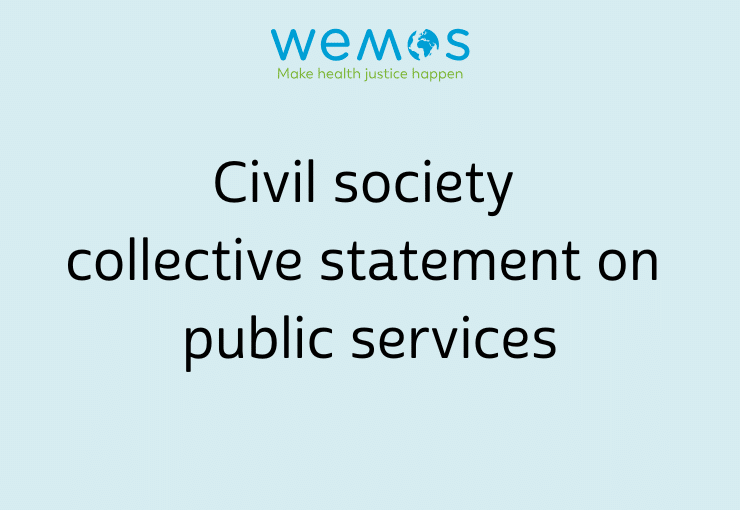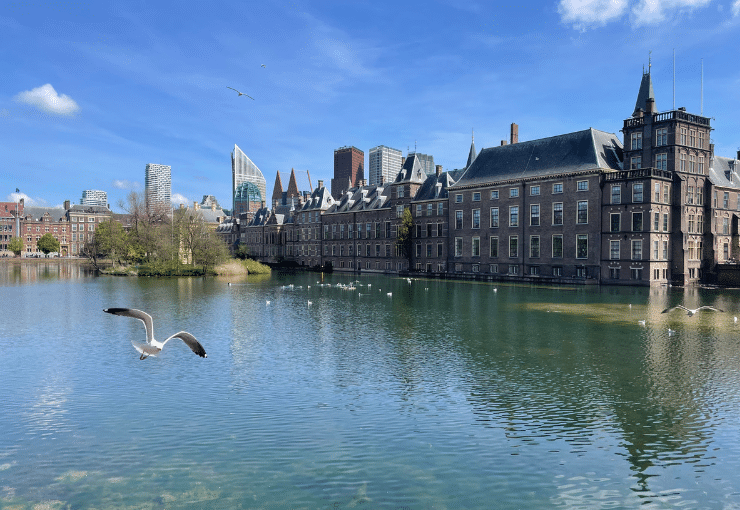The Africa Medical Equipment Facility (AMEF), a relatively new blended finance facility rolled out in Kenya since 2021, does not reach poor populations and fails to promote universal and equitable access to healthcare. This is the conclusion of a joint case study by Akina Mama wa Afrika and Wemos, in which we critically analyse the design and rollout of the AMEF. Based on our findings, we recommend involved policymakers to reassess their blended finance approach, support local manufacturers directly or through the African Union, and to invest and strengthen public healthcare provision.
The AMEF is a blended finance facility that was created to support private healthcare providers in seven African countries (potentially more in the future) to buy medical equipment from manufacturers by de-risking loans provided by local banks. The facility is carried out by the International Finance Corporation (IFC), the private sector arm of the World Bank. It aims to increase healthcare provision, foster innovation, and increase investment in the private health sector by demonstrating its bankability. Kenya is one of the two countries where the AMEF started to be implemented thus far. AMEF Kenya is financially supported by the Global Financing Facility for Women, Children and Adolescents (GFF).
While there is a high need for medical equipment in Kenya and many African countries, it is crucial that the promotion of private healthcare services does not enlarge existing inequality in access to care. Moreover, since the GFF is aimed at improving the health of women, children, and adolescents, one would expect the AMEF to aim reaching vulnerable populations and covering reproductive and maternal health services. In our study, we asked the question whether the AMEF in Kenya truly increases equitable access to healthcare services for everybody.
Contribution to equitable access to healthcare unlikely
We found that the AMEF is mainly attractive for higher-end, medium-to-large private facilities, allowing them to access more financing to purchase medical equipment. However, its loans are unlikely to benefit small, low-end healthcare providers. It is unlikely that the AMEF will contribute to universal and equitable access to healthcare services, reaching “people who are left behind”, and making the AMEF hardly suitable for the GFF’s mission. Since essential services for Reproductive, Maternal, Newborn, Child and Adolescent Health and Nutrition (RMNCAH-N) are delivered through the public system, investment in the AMEF could divert scarce GFF resources.
From interviews, we learned that civil society representatives were often unaware of the initiative. Most interviewees raised criticism on the lack of support to local manufacturers. Civil society representatives and some healthcare officials expressed concerns that the AMEF, like other financing facilities focused on private healthcare, could hamper progress towards health equity in Kenya.
Recommendations
Based on the findings, Wemos and Akina Mama wa Afrika propose the following recommendations to the policymakers directly or indirectly involved in the project.
To the GFF
Since this initiative does not reach people living in poverty we recommend reassessing their blended finance approach and their support to the AMEF in particular.
To the World Bank Group and its arms – the International Finance Corporation (IFC) and International Development Association (IDA)
We recommend assessing investments in the health sector with a health equity lens. To expand access to medical equipment, the World Bank should consider directly supporting local (Kenyan or African in general) manufacturers, or work with the African Union and its existing initiatives, like the Africa Medical Supplies Platform – rather than financing private healthcare providers.
To the Kenyan government
We recommend investing in and strengthening public healthcare provision. This should be financed through progressive taxation, and by increasing the amount of National Health Insurance Fund resources allocated to the public sector.
Read the report




